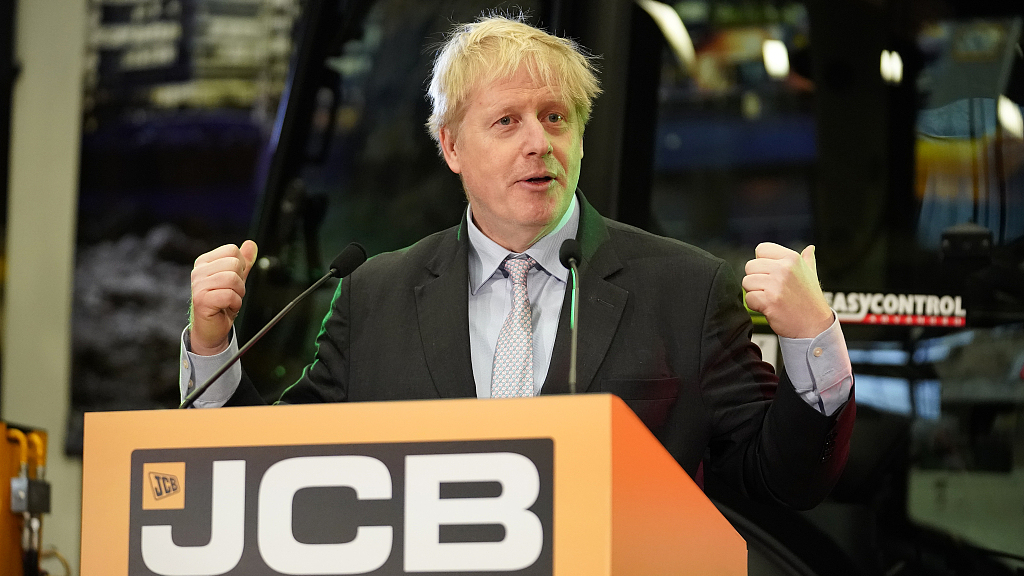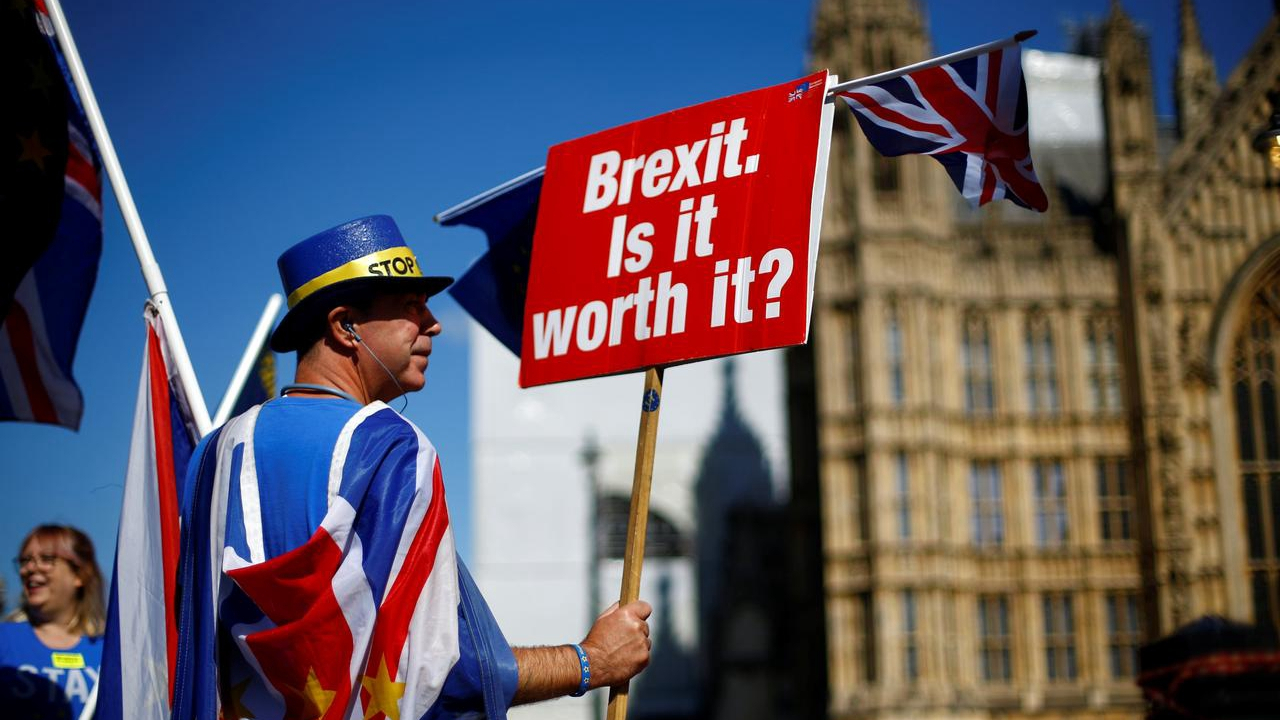

Editor's note: Chris Deacon is a postgraduate researcher in politics and international relations at the University of London and previously worked as an international commercial lawyer. The article reflects the author's opinions, and not necessarily the views of CGTN.
Before Boris Johnson even becomes the prime minister of the UK – as is expected to occur on Wednesday – senior Conservative ministers are already promising to resign from their posts, expecting to be unable to serve in a cabinet under his leadership. How much damage has this done to Johnson's premiership – and, in particular, his Brexit policy – before it has even begun?
On Sunday, announcements were made by two Tory ministers, chancellor of the Exchequer Philip Hammond and justice secretary David Gauke, that they would be resigning in the event of a victory by Boris Johnson in the Conservative leadership contest.
The result of the contest is expected to be announced on Tuesday, with the victor then becoming the prime minister the following day, once outgoing prime minister, Theresa May, has completed her final Prime Minister's Questions in the House of Commons, and visited the Queen at the Buckingham Palace to inform her that she is stepping down.
Johnson has been the hot favorite over his rival, foreign secretary Jeremy Hunt, for the entire contest, and it would be a huge shock if the result was not in his favor. Most Tories are, therefore, presuming a Johnson victory and acting accordingly.

A man holds an anti-Brexit sign outside the Houses of Parliament in London, UK. /Reuters Photo
Of Johnson's promised policy platform, the issue with which these resigning ministers – and many others – have by far the greatest problem is his Brexit policy. Johnson has promised to take the UK out of the European Union on October 31 – the current Article 50 deadline – even if this means leaving with no deal.
Hammond and Gauke have both been outspoken critics of such a plan and, given Johnson's suggestions that he will expect all cabinet ministers serving under him to support him in this endeavor, it is perhaps little wonder that they have taken this decision.
However, to not even wait for Johnson to become the prime minister before making the announcement – and to do so publicly – was surprising, particularly in the case of Hammond who announced his intention to resign live on the BBC's Andrew Marr Show on Sunday morning – an historic first, as he told viewers.
No doubt, in taking this action Hammond and Gauke are intending to send a clear message to Johnson and his allies that even those at the highest level of the party are willing to do whatever it takes to prevent a no-deal Brexit, reinforcing the size of the task ahead for Johnson if he really does intend to pursue this course.
How extreme a form this action might take remains to be seen; however, there has been talk in recent days of even a 'government of national unity' being formed to deal with the Brexit process and prevent a no-deal Brexit. Governments of national unity are usually formed at times of crisis and take their ministers from different parties across parliament to try to avoid party politics taking precedence over sound policy in difficult times.

People's Vote, calling for another vote on Brexit, is projected onto the Houses of Parliament in London, UK, April 1, 2019. /VCG Photo
Hammond's name has been suggested as a possible leader of such a government, as has the Labour Party's Brexit secretary Keir Starmer. Such a move, however, would require a series of dramatic steps, beginning with a government defeat on a "motion of no-confidence" in the House of Commons. Potential governments would then need to show that they could command a majority in the House, otherwise a general election would be called.
Should MPs from across different parties who are against a no-deal Brexit be capable of uniting behind a leader and strategy, this outcome would not be unthinkable, even if it currently appears unlikely. Johnson would then be ousted as prime minister, having potentially only served in the role for a matter of weeks.
While Hammond has by no means confirmed his interest in such a job, in resigning quite so publicly and so specifically on the basis of the Johnson's promise to leave the EU even without a deal, he is laying down a marker as to how seriously he is prepared to take this.
Fascinating and potentially unprecedented times likely lie ahead for British politics over the coming weeks. As MPs in Johnson's governing party, Hammond, Gauke and other Tories who are against a no-deal Brexit will be crucial in securing an alternative path.
(If you want to contribute and have specific expertise, please contact us at opinions@cgtn.com.)

Copyright © 2018 CGTN. Beijing ICP prepared NO.16065310-3
Copyright © 2018 CGTN. Beijing ICP prepared NO.16065310-3